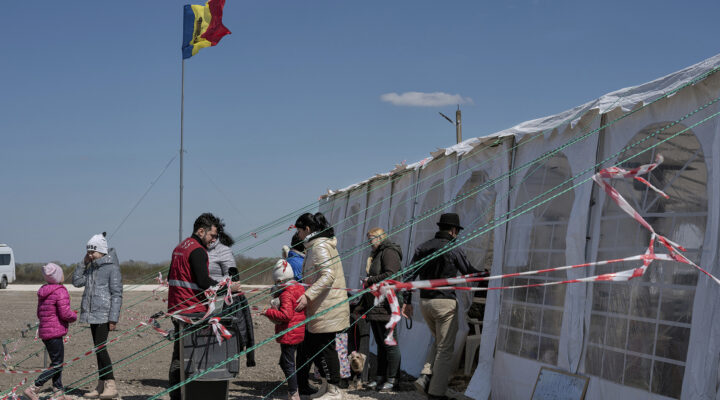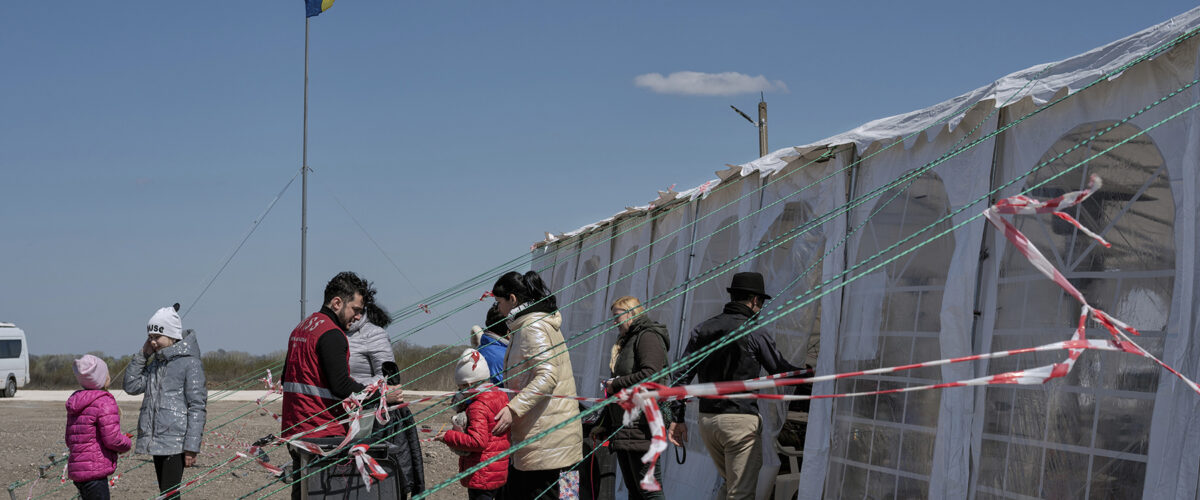The fact that Moldova is one of the poorest nations in Europe has not kept it from being one of the most welcoming and generous to hundreds of thousands of Ukrainian refugees fleeing the Russian invaders.
And Baptists have been at the forefront of that country’s efforts to welcome the stranger, said Elijah Brown, general secretary of the Baptist World Alliance.
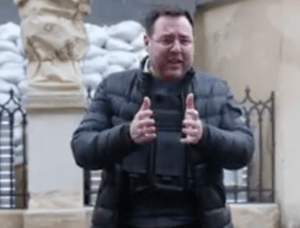
Elijah Brown speaking on a BWA video from Ukraine.
“In the first 10 days of the war, 70% of all Ukrainian refugees to Moldova were welcomed by a Baptist church. That is not the same ratio now, but it demonstrates that the Baptists were at the very forefront of responding to this tragedy as soon as it happened,” said Brown, who toured Ukraine and some of its neighboring countries, including Moldova, in March and April.
That effort by Baptists reflects the same selfless giving of the Moldavan population as a whole, another expert observed.
“Right from the beginning of the refugee influx there was a great mobilization from the community to support refugees,” United Nations human rights adviser Bea Ferenci said in a blog published by the international agency. “Most of the support was based on volunteers, so it was really just Moldovans going there with food carts, clothes, offering transport, accommodation and more. The state certainly appreciated this mobilization, as they were setting up required infrastructure.”
In fact, Moldovans have not been content to wait for refugees to arrive, Ferenci said. “People are just going to border crossing points and picking up refugees. They are even going to shelters to pick up families to take them to their homes. The response is impressive.”
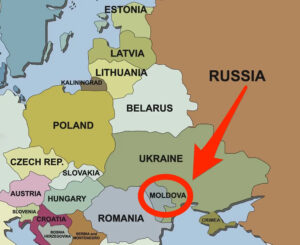 It’s especially impressive considering that Moldova, with 2.64 million citizens, has welcomed at least 421,130 refugees since the Russian invasion in February — the highest per capita of any country. “The influx of refugees to Moldova has been substantial, totaling the equivalent of roughly 15% of Moldova’s population crossing the border since the onset of the war,” according to a World Bank report.
It’s especially impressive considering that Moldova, with 2.64 million citizens, has welcomed at least 421,130 refugees since the Russian invasion in February — the highest per capita of any country. “The influx of refugees to Moldova has been substantial, totaling the equivalent of roughly 15% of Moldova’s population crossing the border since the onset of the war,” according to a World Bank report.
About 80% of Ukrainian refugees currently sheltering in Moldova are hosted by families with the help of government financial assistance, Ferenci said. “There is an understanding and feeling of empathy for Ukrainian refugees. There is also a great fear that this will end up having an impact on Moldova.”
Close to 90% of the refugees are women accompanied by children, the population most vulnerable to sexual exploitation and trafficking, among other risks. Roma refugees also are considered highly vulnerable to racial discrimination, stigmatization and bias-based exclusion, added Elena Cuijuclu, senior minority fellow at U.N. Human Rights Moldova.
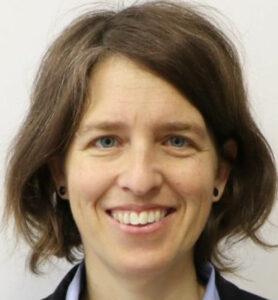
Bea Ferenci
“Roma could be in danger of being left behind. It is one of the greatest concerns raised by human rights defenders, civil society organizations, and U.N. human rights mechanisms,” she said.
Refugee children and those struggling with emotional challenges also must be monitored closely, Ferenci added. “People with mental health issues will need to have regular access to mental health support and medication, so they will need a family doctor. This is the phase we are in now. Every refugee has his or her own story and their own concerns.”
Baptists have focused on those groups in their response, Brown said.
“There are nine Baptist associations in Moldova, and there is significant refugee support in all nine of those regions. Three of the largest Baptist refugee centers in Moldova have averaged 200 people per night since the start of the war. And one of those has developed a specialty in ministering to children that have physical and other special needs.”
But providing ministry in excess of their means is nothing new for Moldavan Baptists, he said.
“The Baptist union in Moldova itself has been [a] very active ministry before the Ukrainian crisis started. For example, before the war the union supported 30 church planters within the country and five missionaries serving outside of the country in areas of sensitivity which can’t be listed publicly.”
There’s also another layer to this story, as Russian military leaders have hinted that annexing Ukraine is not the end of Russian President Vladimir Putin’s ambitions. Some believe Moldova could be the next target.
Ukrainian President Volodymr Zelensky has said Russia’s invasion of Ukraine is only a “beginning” and that “then, they want to capture other countries.”
Related articles:
Baptists in countries bordering Ukraine open their doors to fleeing refugees
What’s the fastest route for Ukrainian refugees to enter the U.S.? Cross the Mexico border

